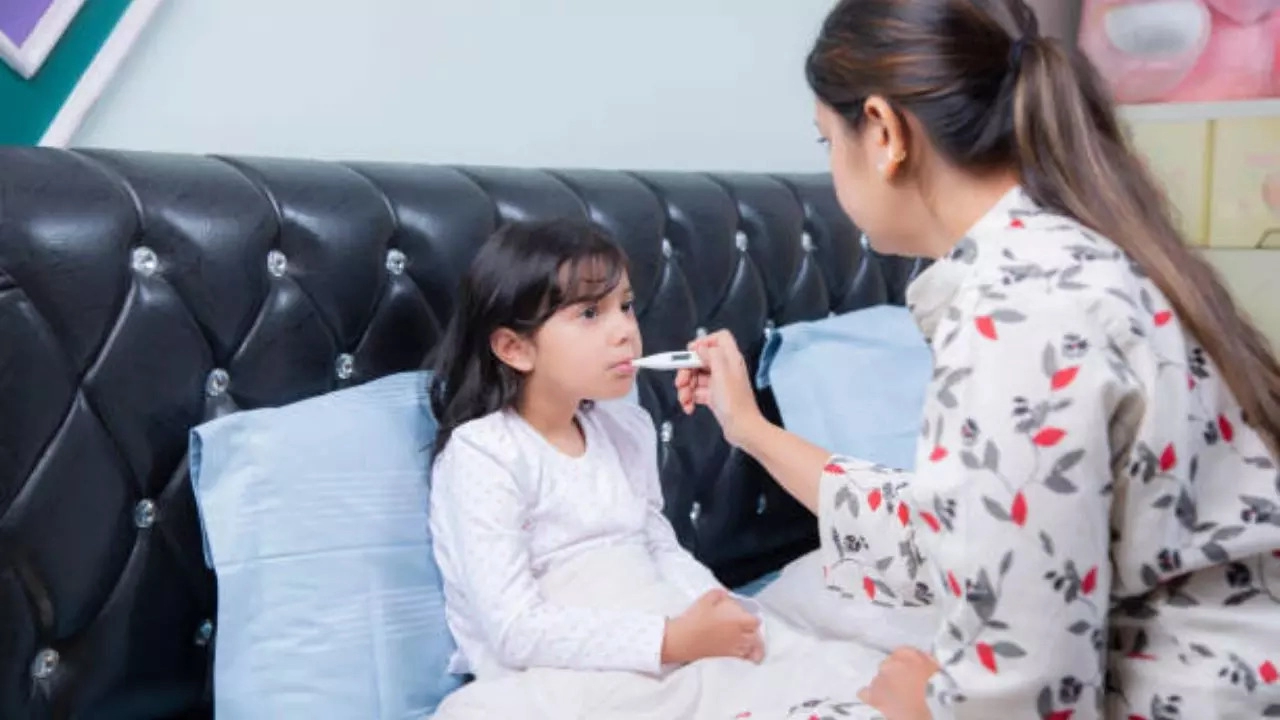Pallavi Mehra • 15 Aug 2024
How To Keep Your Child Safe From Monsoon Infections: Essential Tips Parents Must Follow

How To Keep Your Child Safe From Monsoon Infections: Essential Tips Parents Must Follow (Image Credits: iStock)
With the onset of monsoon, there has been an unexpected increase in conjunctivitis, respiratory infections, viral infections, and acute gastrointestinal diseases such as typhoid, hepatitis, and gastroenteritis this year. Several kids have reported fever, headache, and vomiting which were subsequently found to have enteroviral meningitis. Dengue fever and malaria are two mosquito-borne illnesses that become more common as the season progresses. As children are more vulnerable and prone to diseases, parents need to stay extra cautious during the rainy season. Hence, we got in touch with Dr Priyanka Sinha, Senior Consultant - Paediatrics, Max Hospital Vaishali who shares some vital tips to keep in mind that may help kids to stay healthy throughout the monsoon season.
1. Practise Good Hygiene
The first and foremost step to protect your child from monsoon infections is to practise good hygiene. Dr Priyanka Sinha shares that parents should teach their kids to wash their hands with soap and water frequently, especially before meals and after using the restroom. Maintaining good hand hygiene is essential for lowering the risk of infections such as the flu, the common cold, and gastrointestinal illnesses. Make sure your child also complies with basic hygiene rules, such as not touching their face with dirty hands and covering their mouth when coughing or sneezing.
2. Maintain A Healthy Diet
During monsoon season, your child's immune system will benefit greatly from a balanced diet high in vitamins and minerals, according to Dr. Priyanka Sinha. To provide them with the nutrition they need, include home-cooked meals, fresh produce, and fruits in their diet. Vitamin C-rich foods, such as citrus fruits, can boost immunity and prevent infections. Foods from unclean sources, such as street vendors, should be avoided as they may cause gastrointestinal tract illnesses. To guarantee your child gets the nutrients they require without running the danger of contamination, choose to prepare nutritious and hygienic meals at home.
3. Maintain Hydration
Although the monsoon provides much-needed respite from the summer heat, it can also result in dehydration, which can make your child feel weak and exhausted, Dr Sinha shares. During this time of year, kids frequently forget to drink water, which can make the issue worse. “Make sure your child drinks boiling or filtered water and encourage them to do so throughout the day. Dehydration raises the risk of waterborne illnesses like diarrhoea in addition to impairing immunity. Proper hydration levels can be maintained by including fluids in their diet, such as broths, soups, and oral rehydration treatments,” she said.
4. Wear Proper Clothes
During the monsoon season, it's crucial to ensure that your child wears clothes appropriate for the weather. Make sure their clothes are airy, light, and quick to dry in case they become wet. Children are especially susceptible to infections due to the chills and respiratory problems that come with wearing wet garments. Encourage your child to wear shoes that protect their feet from muddy water as well, since this can help avoid leptospirosis and other diseases, Dr Priyanka Sinha shares.
5. Limit Your Outside Playtime
Playtime outside may be restricted by monsoon showers, but the good times don't have to put an end to it. Dr Priyanka Sinha shares that while kids must keep active, try to restrict their outside playtime during and right after severe downpours. They are susceptible to several illnesses, such as fungal infections, leptospirosis, and skin allergies, under wet and muddy circumstances. During these times include your kids in indoor games, and puzzles, or indulge them in arts and crafts.
6. Keep Your Environment Clean
Stagnant water provides a breeding ground for mosquitoes, which spread illnesses like malaria and dengue. Reducing the risk of diseases requires a clean environment. Dr Priyanka Sinha explains it is essential to clean and sanitise your house regularly; pay special attention to areas that are handled a lot, such as light switches, doorknobs, and toys. Make sure your kids' toys are dry and tidy. To keep your kids safe from mosquito bites, use screens, nets, and repellents, especially in the evening and at night when mosquitoes are most active.
7. Stay Safe From Monsoon Insects
Children are at serious risk for health problems due to the monsoon insects, particularly mosquitoes. To avoid infections like dengue and malaria, you must protect your children from mosquito bites. “To keep insects away from your child, cover cribs and beds with mosquito netting. When applying insect repellent to exposed skin, especially at night and in the evening, make sure it is child-safe,” she said. Further, use window screens and keep doors and windows closed properly to make sure your home is insect-proof.
8. Appropriate Immunisations
Getting your child vaccinated can avoid several infections associated with the monsoon. Make sure your child has had the most recent immunisations against influenza, hepatitis A, and typhoid fever, she shares.
9. Quick Medical Intervention
During the monsoon season, you shouldn't ignore any symptoms of the disease. Frequent signs and symptoms to be aware of include fever, coughing, diarrhoea, vomiting, and fatigue, Dr Priyanka Sinha shares. Get your child medical help right away if they show any of these symptoms.
Get Latest News Live on Times Now along with Breaking News and Top Headlines from Health and around the world.